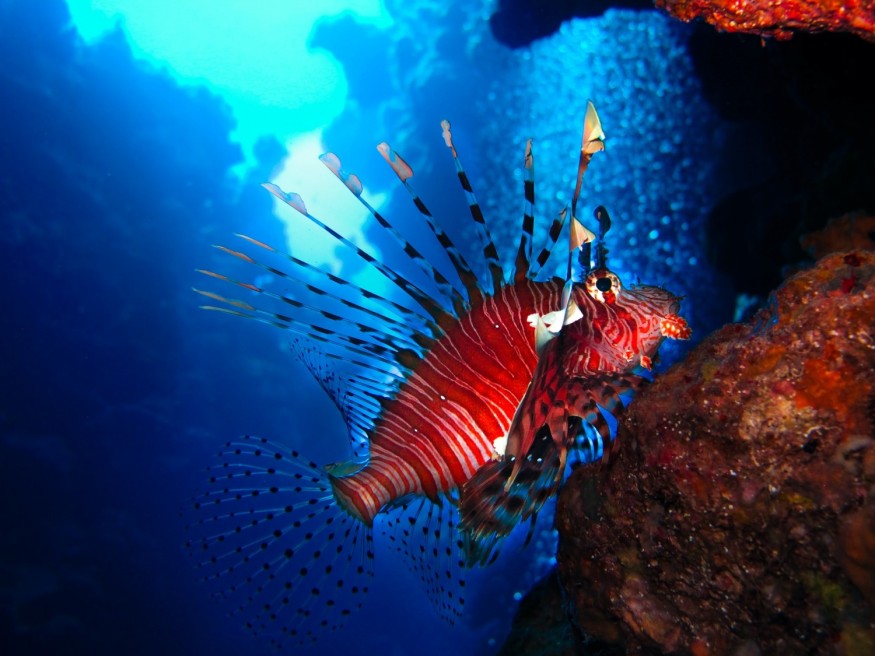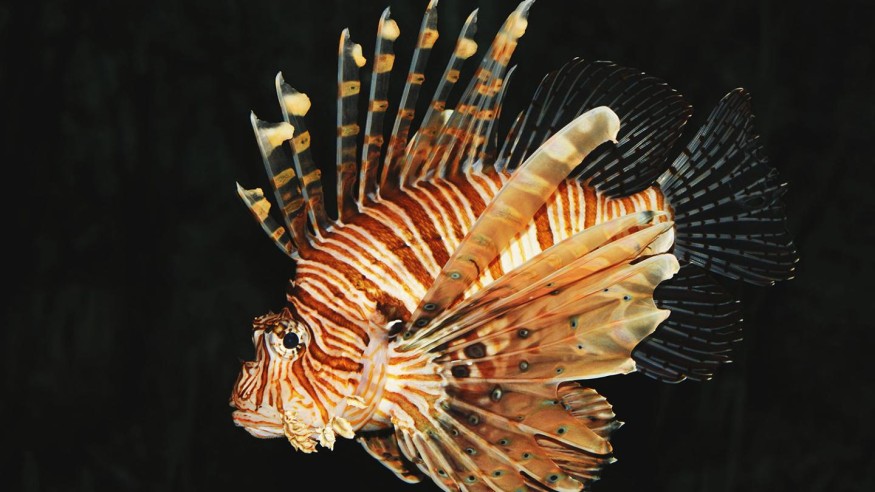.Fish leather is now a thing, and it's both sustainable and created from invasive species. When a passionate diver witnessed how lionfish decimated native tropical fish species in Florida, he decided to assist.
For years, Aarav Chavda has been scuba diving off the coast of Florida. As colorful kinds of fish and coral reefs began to vanish, he got increasingly unhappy.
Invasive Lionfish

The lionfish, an invasive species that has thrived in Atlantic seas from Florida to the Caribbean in recent decades, as well as in a variety of other locations from Brazil and Mexico to the Mediterranean, is one of the main reasons for the extinction.
Outside of their native habitat - the Indian and Pacific Oceans and the Red Sea - lionfish have no natural predators. They are all-consuming, killing an estimated 79 percent of juvenile marine life within five weeks of joining a coral reef system. "When you dive now, you can see the consequences on the reefs - it's less vivid, less cacophonous," Chavda added.
"We know there are remedies for some of the issues - like coral-friendly sunscreens to help safeguard the reefs - but no one has been able to do anything about the lionfish."
Read also: Plenty of Fish in the Sea: "Ugly" Fishes Found to be at Risk More Compared to the "Beautiful" Ones
Environmental Consciousness

So Chavda and a group of environmentally conscious fellow scuba divers decided to take action by founding Inversa, a company that transforms lionfish into a new product: fish leather. The team was named one of nine finalists in the Global Ocean Resilience Innovation Challenge (Oric) on Wednesday, World Oceans Day.
Chavda, 27, and Roland Salatino, a boyhood buddy from Texas, founded the leather firmly in Florida. They cure the fish skins using drying chemicals and color them before selling the leather to partner firms for use in high-end items such as wallets, belts, and purses. Fish skin is thin, yet it is stronger than many other forms of leather because the fiber structure runs across.
Chavda claims that one hide may preserve up to 70,000 native reef fish.
On the other hand, traditional animal leathers require extensive grazing on vast swaths of grassland, eroding soils and emitting significant levels of carbon dioxide.
Opening Opportunities
Inversa does not hunt the lionfish. Instead, it trains and encourages mostly impoverished fishermen and women to capture them in frequently isolated locations.
"A lot of the geographies, especially in the lower-income Caribbean area, have no market at all [for lionfish], so this fish is not only ruining the coral reefs that support these fishing cooperatives' livelihoods, but they also can't do anything about it," Chavda added.
"They could go for lionfish, but that takes time and prevents them from going after other prey. It's sad since they'd be wasting their valuable time, not on lobster or grouper."
The Oric judges were pleased by the Inversa initiative, which aims to solve this problem. The firm plans to establish well-equipped fishing cooperatives in Quintana Roo, Mexico, by assuming the risk of the fishermen with a "100% catch-to-cash guarantee" for lionfish. This would fund the procurement of equipment, after which premium incentives and timely payment for lionfish would be offered.
"We're actually empowering the consumer and fashion by doing something for the world, and then we're enabling diving communities in fishing cooperatives all over the Caribbean to do something for themselves," Chavda explained.
Related Article : How Invasive Species Thrive in the Mediterranean
For the most recent updates from the animal kingdom, don't forget to follow Nature World News!
© 2025 NatureWorldNews.com All rights reserved. Do not reproduce without permission.





